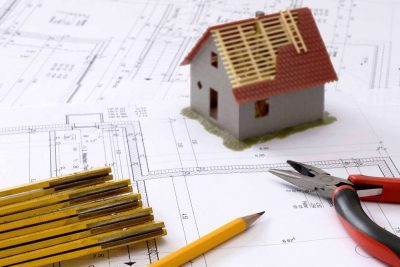
The protection of customers’ financial interests and the health of the economy as a whole is vital work done by real estate appraisers. They offer honest assessments of the actual market worth of different kinds of property that are free from bias.
Today, we are going to talk about everything that you need to know about how to become a licensed real estate appraiser. This includes a step-by-step guide as well as common specialties in the field of real estate appraising. Now, without wasting any more time, let’s begin.
What is a Real Estate Appraiser
Someone who is experienced in assessing properties and figuring out their market value is considered an appraiser. They provide extensive analyses for a variety of reasons, including real estate transactions, taxation, and legal challenges. To offer fair and objective assessments of the monetary worth of a property, appraisers sometimes work with mortgage lenders or are employed by appraisal businesses. They take into account a number of details to ascertain a property’s worth, such as its size, actual land, state of the buildings, potential for income, and the neighborhood.
Appraisers are frequently needed in a variety of situations, including tax assessments, facilitating buyer-seller negotiations, supporting business litigation, assisting with mortgage lending on behalf of banks, handling foreclosure cases for banks, negotiating lease agreements, assisting in the acquisition of private property by government agencies, providing a valuation for divorce proceedings, providing estate planning assistance, and even appraising the value of a person’s home. Their knowledge and analysis are extremely important in providing fair and accurate property values in a variety of situations.
Common Specialties in Appraising
When discussing appraising, real estate assessment is frequently the first professional specialization that comes to mind, but there are numerous additional specialties within this career path. Here are eight typical areas of specialization that you can choose when you decide to get an appraisal license:
The valuation and calculation of the fair market value for various kinds of real estate assets are included in real estate property evaluation. Residential real estate comprises houses, lots, structures, and other assets. A complex property appraisal is a more complicated type of assessment that is used in the context of residential complexes. Estimating the prices of individual residences or units within a residential complex is part of this specialist evaluation.
Commercial property evaluation extends beyond residential properties and focuses on evaluating both existing commercial assets and those that are being developed. The value of commercial real estate assets is determined in large part by the appraisal process.
On the other hand, litigation assessment has a special function in legal circumstances. It entails determining the value of personal property in situations like divorce processes, insurance disputes, or fraud charges. This kind of evaluation is essential for determining asset values and settling legal disputes.
Within the profession, agricultural appraisal is a specialized area of expertise that focuses on determining the worth of agricultural properties and land. The worth of crops, cattle, and other agricultural assets is also determined as part of this evaluation process, which extends beyond the land itself. For farmers, investors, and lenders in the agricultural sector, it is a crucial instrument.
In the specialized field of review appraisal, appraisers examine and assess the precision and transparency of another appraiser’s work. This procedure guarantees that assessments follow accepted criteria and rules, fostering dependability and industry trust.
The last sort of evaluation is business valuation, which determines the economic worth of an individual’s company. This evaluation is especially important when engaging in commercial operations like mergers and acquisitions or looking for funding. Correct business appraisals offer essential information about a company’s financial situation and possibilities.
Step-by-Step Guide
Here is a guide for how to become a licensed appraiser.
Meet Educational Requirements
A high school certificate or GED and being of legal age are prerequisites for becoming an appraiser. You can then finish the necessary number of hours in foundational education courses. The number of education hours you must complete might vary based on the program and the state in which you reside. For instance, some organizations have a 60-hour minimum requirement that is split into two sections. These are courses that concentrate on fundamental concepts of appraisal as well as fundamental techniques of appraisal.
Start a Trainee Program
A certified appraiser’s first stage of the appraiser trainee program is a chance for you to get practical experience and hone your technical knowledge and practical abilities. Because the organization needs you to submit an official log to the state after completion, it’s crucial to keep meticulous records of the training hours.
Take the Exam
You can take the trainee test if you’ve finished the first 15 hours of professional appraisal practice. The state regulations governing data collecting, surveying, and other real estate-related issues are covered in each state’s individual Appraiser Trainee Exam. To become a licensed trainee appraiser in your state, you must pass the applicable state trainee test and turn in your Universal Standard of Professional Appraisal Practice journal. With this permit, you can begin your career as a trainee professional property appraiser and work under supervision.
Additional Educational Requirements
The next stage is to finish the educational requirements set out by your state in order to become an appraiser capable of working independently. Moving beyond the trainee level requires 75 more hours of appraising course study in addition to the 60 hours of prerequisite education courses and the 15 hours of Universal Standard of Professional Appraisal Practice.
Reach 1,000 Hours with a Mentor
You can start tracking your work experience hours either while taking the additional 75 hours of assessment course study or right after finishing it. You can work under a mentor or manager’s supervision if you are a licensed trainee appraiser. You can finish 1,000 hours of work under the supervision of your mentor to be allowed to operate without supervision and obtain a regular Residential Appraiser license.
Pass the SLREA or NULC exam
The National Uniform Licensing and Certification test is also known as the NULC, while the SLREA stands for the State Licensed Residential Real Property Appraiser examination. The two tests serve as evaluations for the official standard residential license. The state in which a person is applying for the license is the one that administers the SLREA test, and passing standards differ from state to state. Although each state also administers the NULC exam, the test and its prerequisites are the same throughout.








